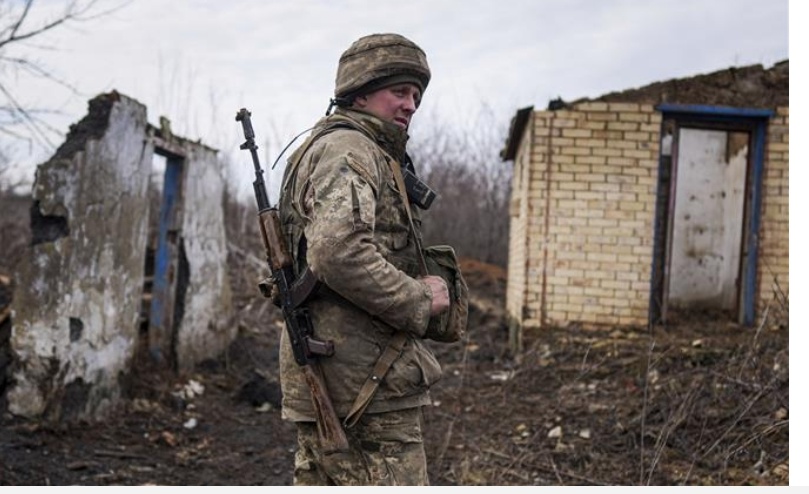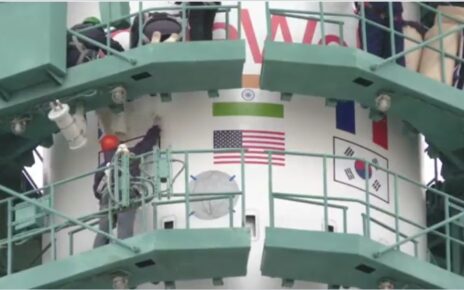Russian troops handed control of the Chernobyl nuclear power plant back to the Ukrainians and left the heavily contaminated site early on Friday, more than a month after taking it over, Ukrainian authorities said, as fighting raged on the outskirts of Kyiv and other fronts.
Ukraine’s state power company, Energoatom, said the pullout at Chernobyl came after soldiers received “significant doses” of radiation from digging trenches in the forest in the exclusion zone around the closed plant.But there was no independent confirmation of that.The withdrawal took place amid growing indications that Kremlin is using talk of de-escalation in Ukraine as cover while regrouping, resupplying its forces and redeploying them for a stepped-up offensive in the eastern part of the country.Ukrainian President Volodymyr Zelenskyy said Russian withdrawals from the north and centre of the country were just a military tactic and that the forces are building up for new powerful attacks in the southeast.
“We know their intentions,” Zelenskyy said in his nightly video address to the nation. “We know that they are moving away from those areas where we hit them in order to focus on other, very important ones where it may be difficult for us.” “There will be battles ahead,” he added.A new round of talks was scheduled for Friday, five weeks into the war that has left thousands dead and driven 4 million Ukrainians from the country.The International Atomic Energy Agency said it had been informed by Ukraine that the Russian forces at the site of the world’s worst nuclear disaster had transferred control of it in writing to the Ukrainians.
The last Russian troops left the Chernobyl plant early on Friday, the Ukrainian government agency responsible for the exclusion zone said.Energoatom gave no details on the condition of the soldiers it said were exposed to radiation and did not say how many were affected. There was no immediate comment from the Kremlin, and the IAEA said it had not been able to confirm the reports of Russian troops receiving high doses. It said it was seeking more information.Russian forces seized the Chernobyl site in the opening stages of the February 24 invasion, raising fears that they would cause damage or disruption that could spread radiation. The workforce at the site oversees the safe storage of spent fuel rods and the concrete-entombed ruins of the reactor that exploded in 1986.
Edwin Lyman, a nuclear expert with the US-based Union of Concerned Scientists, said it “seems unlikely” a large number of troops would develop severe radiation illness, but it was impossible to know for sure without more details.He said contaminated material was probably buried or covered with new topsoil during the cleanup of Chernobyl, and some soldiers may have been exposed to a “hot spot” of radiation while digging. Others may have assumed they were at risk too, he said.Early this week, the Russians said they would significantly scale back military operations in areas around Kyiv and the northern city of Chernihiv to increase trust between the two sides and help negotiations along.
“Russia has repeatedly lied about its intentions,” Stoltenberg said. At the same time, he said, pressure is being kept up on Kyiv and other cities, and “we can expect additional offensive actions bringing even more suffering.”Russian President Vladimir Putin said that conditions weren’t yet “ripe” for a cease-fire and that he wasn’t ready for a meeting with Zelenskyy until negotiators do more work, Italian Premier Mario Draghi said after a telephone conversation with the Russian leader.As Western officials search for clues about what Russia’s next move might be, a top British intelligence official said demoralised Russian soldiers in Ukraine are refusing to carry out orders and sabotaging their equipment and had accidentally shot down their own aircraft.




